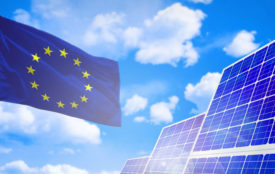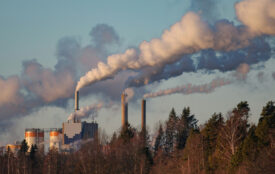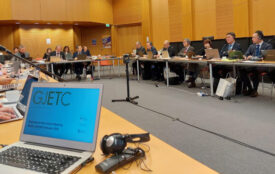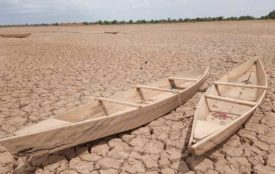Poorer nations expected to face up to $75 billion six-year shortfall in climate finance: Oxfam
Wealthy nations are expected to fall up to $75 billion short of fulfilling their long-standing pledge to mobilize $100 billion each year from 2020 to 2025 to help the most vulnerable countries adapt to the dangerous effects of climate change and reduce their emissions, according to estimates by Oxfam today.
This analysis comes ahead of informal climate talks between world leaders at the UN General Assembly later today ―a key moment to get the target back on track ahead of the COP26 UN Climate Summit in Glasgow in November. The Organization for Economic Co-operation and Development (OECD) released new data on Friday showing that developed countries provided only around $80 billion in climate finance in 2019.
Based on current pledges and plans, Oxfam estimates that wealthy governments will continue to miss the $100 billion goal and reach only $93 billion to 95 billion per year by 2025, five years after the goal should have been met. This means that climate-vulnerable countries could miss out on between $68 billion and $75 billion in total over the six-year target period.
Hot and cold temperatures are estimated to kill five million people every year, accounting for more than nine percent of human deaths globally, and this is expected to increase as heat-related deaths rise due to climate change. Climate change could trigger economic losses double that of the pandemic, but it is not being treated with the same urgency. In 2020, the EU, UK, US, Canada, Australia and Japan spent more than $15 trillion on COVID-19 fiscal recovery packages ―equivalent to meeting the climate finance goal 151 times over. At the same time, total global military spending rose by 2.6 percent since 2019 to just under $2 trillion ―nearly 20 times more than the climate finance goal.
While some countries, including the US, Canada and Germany, have increased their pledges in recent months their efforts have not been enough. At the G7 Summit in June, leaders repeated their commitment to narrow the gap, but those of France, Australia and Japan failed to increase their contributions above current levels. Several countries, including Italy, Spain and the Netherlands have made no new climate finance pledges.
Oxfam also raises serious concerns about how wealthy countries are currently allocating climate finance:
- While the UN Secretary-General, Oxfam and others have called for half the money to be spent on adaptation, based on existing pledges by donor countries we estimate that only about a quarter ($26 billion to 27 billion) of total climate finance in 2025 will be spent helping developing countries build resilience and adapt to worsening climate impacts.
- In 2019, 70 percent of public climate finance was given out as loans instead of grants. This seems set to continue through to 2025 which will push developing countries into more debt.
Climate finance is one of the three key pillars of the Paris Agreement and vital to global efforts to tackle the climate crisis and its impacts. Globally, 2020 tied for the hottest year on record, with 98.4 million people affected by floods, storms and other climate-related disasters and caused economic losses of at least $171 billion.
For developing countries, transitioning to clean energy and adapting to climate change impacts —some of which are already irreversible— cannot happen without this support. Many are already being forced to spend large amounts of their public finances on combating climate change. For example:
- Poor families in rural Bangladesh spend nearly $2 billion a year on preventing climate-related disasters or repairing the damage caused by them —twice as much as the government and over 12 times more than Bangladesh receives in multilateral international climate financing. The average person in Bangladesh produces 24 times less CO2 than the average person in the US.
- Due to rising temperatures, Madagascar is experiencing its worst drought in 40 years. More than one million people in the Grand Sud region are food insecure. Madagascar contributed 0.01 percent of all the carbon dioxide generated from 1933-2019.
Nafkote Dabi, Oxfam International’s Global Climate Policy Lead, said: “The pandemic has shown that countries can swiftly mobilize trillions of dollars to respond to an emergency — it is clearly a question of political will. Let’s be clear, we are in a climate emergency. It is wreaking havoc across the globe and requires the same decisiveness and urgency. Millions of people from Senegal to Guatemala have already lost their homes, livelihoods and loved ones because of turbo-charged storms and chronic droughts, caused by a climate crisis they did little to cause. Wealthy nations must live up to their promise made twelve years ago and put their money where their mouths are. We need to see real funding increases now.”
According to the UN Environment Program, annual adaptation costs in developing countries are expected to reach $140 billion to 300 billion per year by 2030, and $280 billion to 500 billion by 2050.
With the COP26 UN climate talks in Glasgow just over a month away, Oxfam is calling on wealthy countries to urgently increase their pledges of climate finance to deliver on their target. At least 50 percent of climate finance should be spent on adaptation.








